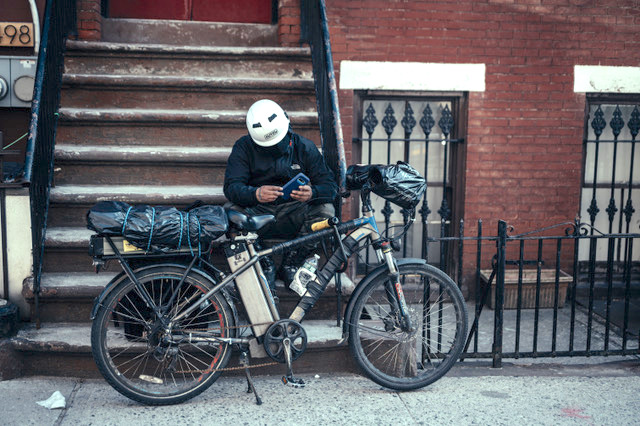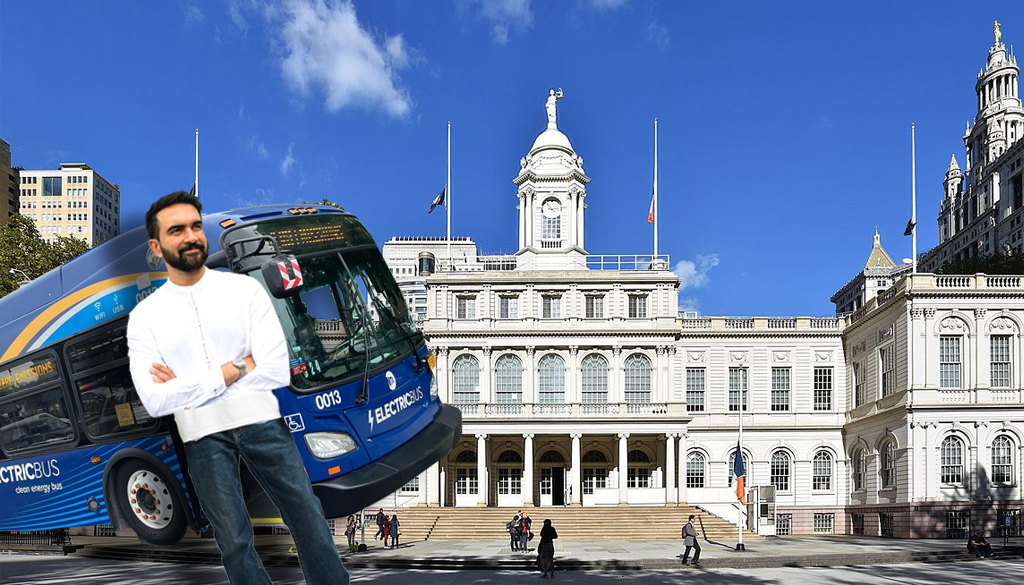The New York City Housing Authority is mulling a ban on e-bikes after a fire caused by the charging of a bike's lithium-ion battery killed two residents of a Harlem complex last month. Such a reaction is understandable, but a ban would be a mistake. Instead, the city and NYCHA should look to mitigate the risks associated with e-bikes and such batteries by encouraging and supporting battery-swapping services. (Full disclosure: I head a start up that offers such a service.)
Because New York was a late adopter of e-scooter and e-bike sharing services, it has relatively few facilities for charging personal e-mobility devices or options for swapping out their batteries. Our policy basically has forced city residents who want to use e-mobility devices to charge them in their apartments — with the unintended consequence of making our housing more susceptible to battery fires.
NYCHA would have a hard time enforcing a ban on e-bike and e-bike batteries — which many delivery workers depend on for their livelihood. An e-bike without a battery connected to it is just a bicycle, and bikes are legal to bring into NYCHA apartments. The batteries for mobility devices resemble a shoe box and can be concealed easily. Banning e-bikes wouldn't even solve the problem of battery fires, because hoverboards, remote-control cars and drones use even more flammable batteries, and are even easier to conceal.
Complicating matters, seniors and disabled individuals — and NYCHA housing holds a relatively high percentage of both — often use lithium-ion batteries in their wheelchairs and mobility scooters because such batteries charge faster and give those devices a longer range than lead-acid batteries. Some seniors also use e-bikes and e-scooters as mobility enhancers. Seniors living in NYCHA buildings shouldn’t be confined to their apartments. Thus, banning e-bikes would have Americans With Disabilities Act implications, and would affect NYCHA residents who use e-bikes for exercise and leisure as well as those who use them for work.
The following policies could help New Yorkers avoid fires while enhancing personal e-mobility:
Mandate Lithium Ferrous Phosphate instead of Nickel Manganese Cobalt cells in battery cases: Almost all e-bikes in the city use battery packs made from lithium-ion cells with cathodes made of a combination of nickel, manganese and cobalt. NMC cells are more flammable, have a short cycle life, and often use cobalt that is dug out by hand by child laborers in the Congo. Lithium ferrous phosphate cells, on the other hand, have only 60 to 70 percent of the energy density of NMC cells, but they are much safer and more ethically produced, with fewer supply-chain issues. Most important, LFP batteries rarely explode or catch fire. If all e-bikes in the city switched from NMC cells to LFP, e-bike fires could be eliminated. It's that simple. Tesla has made this transition on some of its cars and has invested in LFP cells.
Encourage battery swapping instead of charging: In many countries, such as Taiwan and India, users of personal-mobility devices don’t own and charge batteries; rather, they pay a monthly subscription fee to a battery-swap service. Taiwan, for example, has thousands of swap stations at which riders can swap their depleted batteries for charged ones. Because LFP batteries have only 60 to 70 percent of the energy density of NMC batteries, consumers would be more willing to transition to a 3.5-hour battery from a five-hour battery, if they knew that they could swap them in seconds at convenient locations. Battery range would no longer be an issue.
Education: Any ban would have little effect if people don’t understand the risks of charging high-density batteries inside multiple-unit dwellings. Even daily e-mobility riders often know little about what's in their batteries or how to care for them. Parents buy their kids hoverboards or remote-control cars as toys, unaware of the risks involved with charging the battery.
Geofencing and remote monitoring: Technology exists that can monitor battery packs remotely and shut them off before accidents happen. Battery packs can include bluetooth transmitters to send information to local receivers with information about the state of the battery. Geofencing devices inside the packs can turn off charging or discharging while inside buildings. All these functions, which exist overseas, will come to New York.
Invest in public/private partnerships: Overseas governments understand that subsidizing battery-swapping networks and e-scooters are good policies. India and Taiwan provided subsidies to build out their swapping networks. Growth will happen in this industry; it should be regulated properly and supported.
NYCHA has a dilemma: It must provide tenants with safe housing, yet it doesn’t want to create an unenforceable, regressive policy that bans e-bikes or, worse, takes away mobility devices from the less abled. Other cities have found a way to balance growth and safety, and realize the importance of moving toward a car-free future. New York must, too.
Baruch Herzfeld (@popwheelsinc) is the founder and CEO of Popwheels Inc., a Brooklyn-based startup that hopes to build a citywide e-battery swapping network, using safer, cleaner, more ethical, and more sustainable LFP cells.







